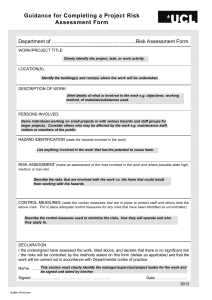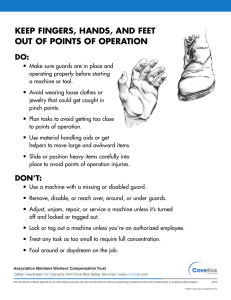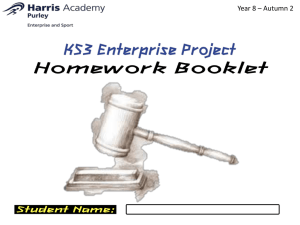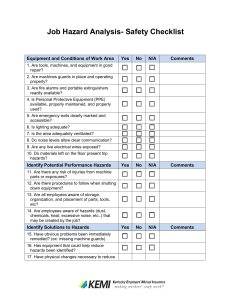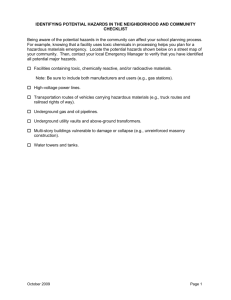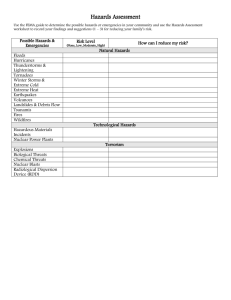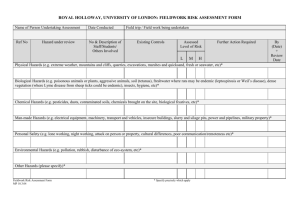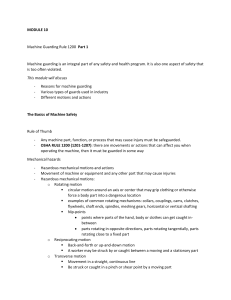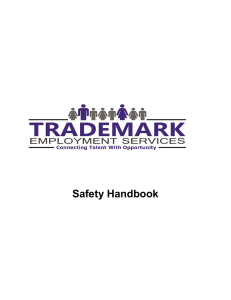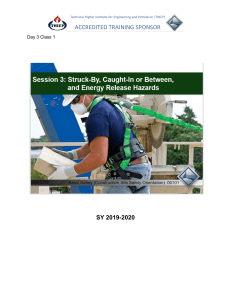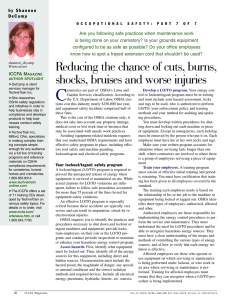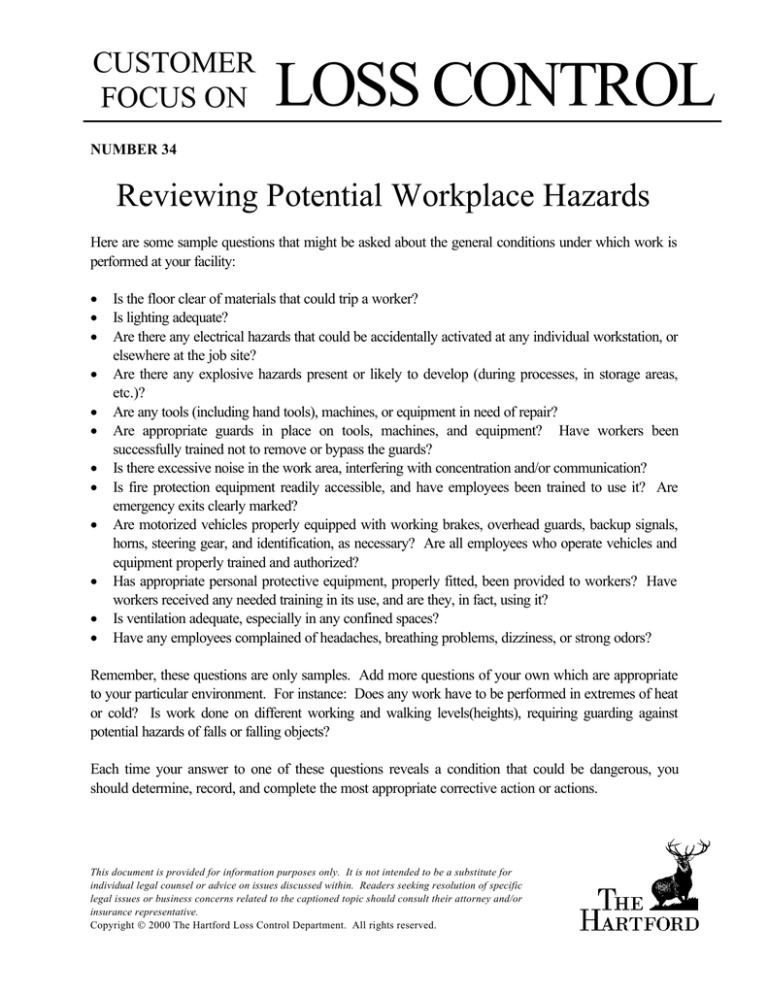
CUSTOMER
FOCUS ON
LOSS CONTROL
NUMBER 34
Reviewing Potential Workplace Hazards
Here are some sample questions that might be asked about the general conditions under which work is
performed at your facility:
•
•
•
•
•
•
•
•
•
•
•
•
Is the floor clear of materials that could trip a worker?
Is lighting adequate?
Are there any electrical hazards that could be accidentally activated at any individual workstation, or
elsewhere at the job site?
Are there any explosive hazards present or likely to develop (during processes, in storage areas,
etc.)?
Are any tools (including hand tools), machines, or equipment in need of repair?
Are appropriate guards in place on tools, machines, and equipment? Have workers been
successfully trained not to remove or bypass the guards?
Is there excessive noise in the work area, interfering with concentration and/or communication?
Is fire protection equipment readily accessible, and have employees been trained to use it? Are
emergency exits clearly marked?
Are motorized vehicles properly equipped with working brakes, overhead guards, backup signals,
horns, steering gear, and identification, as necessary? Are all employees who operate vehicles and
equipment properly trained and authorized?
Has appropriate personal protective equipment, properly fitted, been provided to workers? Have
workers received any needed training in its use, and are they, in fact, using it?
Is ventilation adequate, especially in any confined spaces?
Have any employees complained of headaches, breathing problems, dizziness, or strong odors?
Remember, these questions are only samples. Add more questions of your own which are appropriate
to your particular environment. For instance: Does any work have to be performed in extremes of heat
or cold? Is work done on different working and walking levels(heights), requiring guarding against
potential hazards of falls or falling objects?
Each time your answer to one of these questions reveals a condition that could be dangerous, you
should determine, record, and complete the most appropriate corrective action or actions.
This document is provided for information purposes only. It is not intended to be a substitute for
individual legal counsel or advice on issues discussed within. Readers seeking resolution of specific
legal issues or business concerns related to the captioned topic should consult their attorney and/or
insurance representative.
Copyright 2000 The Hartford Loss Control Department. All rights reserved.

